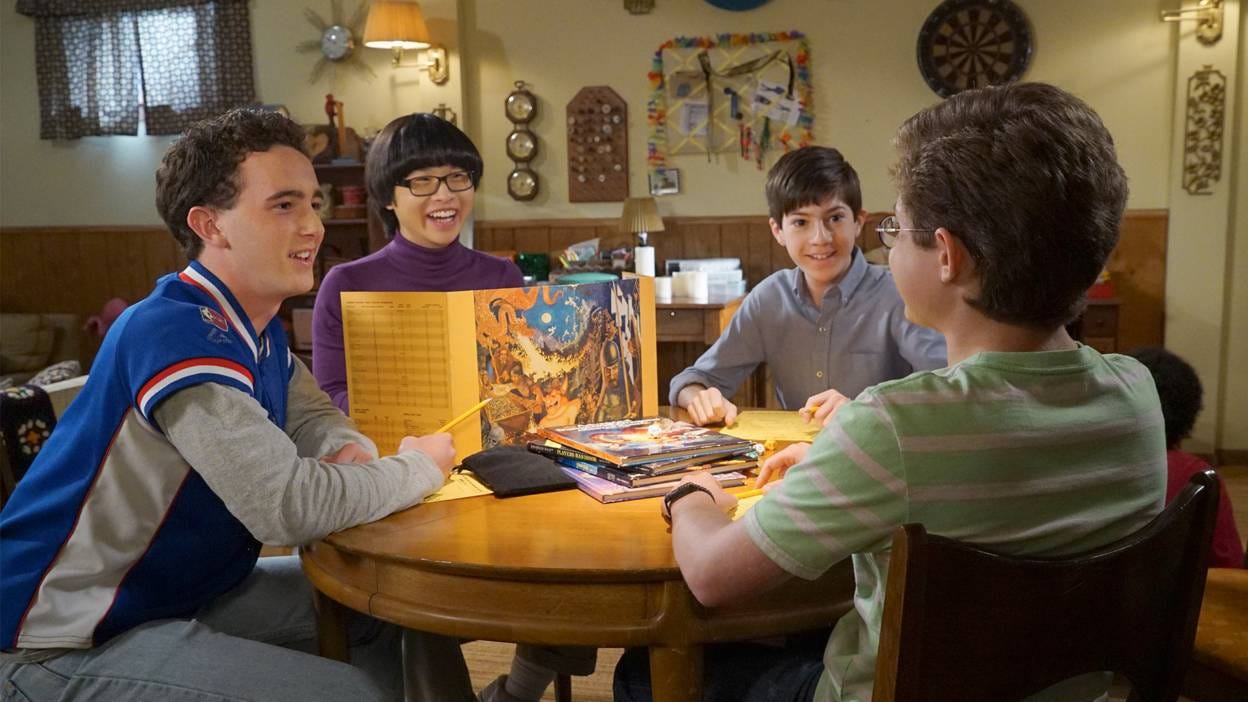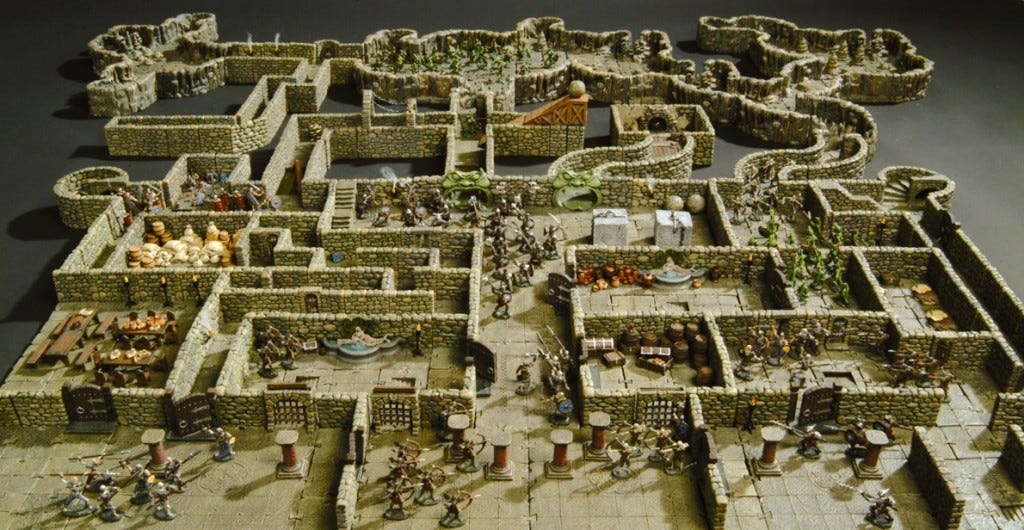10 Reasons Theatre of the Mind Reigns Supreme
Physical minis and terrain are undeniably cool, but they can't compete in terms of immersion and imagination.
You can’t explore this hobby for long before you run into the ongoing debate between running your game with theatre of the mind vs. physical minis and terrain. Theatre of the mind (TOTM) uses only descriptions by the Game Master (GM) and players to facilitate play. All that is required are some character sheets and pencils (and maybe not even those if your game is rules-lite enough).
Conversely, some groups swear by physical minis, battle maps, and terrain in order to enhance their experience.
So which is superior: theatre of the mind or physical terrain and minis? Many will argue there is no correct answer to this question. That’s because they are fools with little courage and less conviction. 😉
The objective answer is…*drum roll*…theatre of the mind. I’ll grant that miniatures, sculpted terrain, and other physical props are immensely cool, but theatre of the mind reigns supreme as the ultimate mode of table top roleplaying. Here are 10 reasons why:
It pairs perfectly with rules-lite RPGs. There’s a case to be made for the necessity of using physical maps and minis for rules-heavy, tactical RPGs like Pathfinder or D&D, but why are you playing those games?! Rules-lite games rule, and because they focus more on building a compelling story than combat tactics, they fully leverage the benefits theatre of the mind offers both players and Game Masters.
It’s free. Theatre of the mind costs nothing, which means it’s imminently accessible to everyone, especially beginners and those without the financial means to invest in a library of minis and terrain. Once you begin down the road of minis and terrain, things can snowball pretty quickly. Stay financially safe and invest in imagination instead of plastic!
It’s limitless. Because game sessions aren’t tied to what minis and terrain are available to your group, your group’s genre, setting, and scenario options are limitless. The stunning vistas, incredible heroes, unforgettable NPCs, horrifying monsters, and strange locations available to your group are as boundless as your collective imaginations.
It’s portable. Ever tried to transport minis and terrain to a different location? Yeah, it sucks. TOTM allows your group to play anywhere (whether in-person or online) without the hassle of transporting gaming gear. Bliss!
It’s immersive. Straight facts: TOTM is more narratively immersive than minis and terrain. That’s because TOTM forces the players into a personalized experience of the story via their own imaginations. Yes, there are descriptions of locations, events, and actions, but these play out in each player’s mind’s eye in a customized experience that physical props can’t duplicate. As players rely on their imaginations to visualize the unfolding story, immersion is enhanced and players become more invested as a result.
It’s flexible. When you set up physical minis and terrains, you are bounding the context and narrative possibilities of that session to a certain degree. There are now limitations to what players are free to explore and try. For example, if you prep for them to enter a dungeon only to have them spontaneously pivot towards visiting another location first, you’ve got a problem. You either have to take that option off the table and railroad your players into the dungeon, or watch your painstaking set-up collect dust while your players explore a different location first (ironically, via theatre of the mind).
It’s more accessible. TOTM allows players with visual impairments or other disabilities to fully participate in the game without any additional accommodations. That’s a big win for inclusivity!
It’s facilitates “flow”. Moving miniatures, measuring distances, and adjusting terrain slows down the game and often interrupts the flow of gameplay by taking players out of their character’s mindset. That leads to player disengagement. TOTM facilitates a faster and more streamlined way of playing, which helps the events of the session flow and build with narrative momentum.
It facilitates roleplaying. Minis and terrain distract players (especially kids!). I also believe minis and terrain inevitably nudge players towards playing the game pieces instead of their character. Without the distraction of miniatures and terrain, players are freed to focus on their character’s motivations and interactions.
It requires no set up or clean up. Finding and using the right miniatures and terrain in advance of a gaming session can be enormously frustrating and time-consuming. It can make planning shorter sessions not feel worth the effort, and besides, the extra energy required to set up and clean up places another burden on GMs who already carry a disproportionate load of responsibility for game sessions.
What are your thoughts? Have I hit the nail on the heat or stirred the hornet’s nest?







"It’s more accessible. TOTM allows players with visual impairments or other disabilities to fully participate in the game without any additional accommodations. That’s a big win for inclusivity!"
"Aphantasia is the inability to voluntarily create a mental picture in your head. People with aphantasia are unable to picture a scene, person, or object, even if it’s very familiar. " (https://www.healthline.com/health/aphantasia-cure#What-is-aphantasia?)
In my (rarely) humble opinion, TOTM also works better for some of the more rules- centric games, like D&D and for many of the same reasons that you mentioned.
1. It's limitless - if you can describe it then you can use it. Why would a dragon land where characters can hack at it? Why would it not choose to attack from the air? With minis, is a GM going to hold the dragon for the entire combat? With TOTM the description of the dragon flying sets the stage.
2. It's portable - just as mangrove for rules- lite games, this applies for other games as well.
The same arguments really vary through the rest of the points presented.
Even for paid GMs, TOTM really is superior. Many people have been trained to expect terrain and minis from many of the broadcast sessions without also realizing that those sessions are following a very carefully created script. Matt Mercer's table is not going to change their minds or select something that he hasn't prepared because their session is scripted and the players are voice actors. There will never be a case c where he has all the terrain set up for the castle and the group decides to go explore a cave instead. Tell me a real GM who has not dealt with that. TOTM takes that in-stride and enables the GM to maintain the immersion by creating the new situation through description (even if it was not something they had planned at all).
For all of these reasons TOTM remains superior